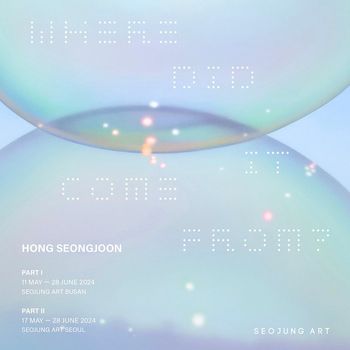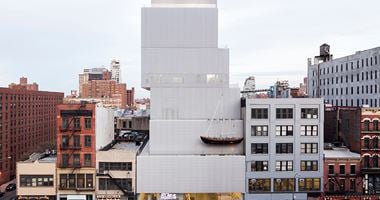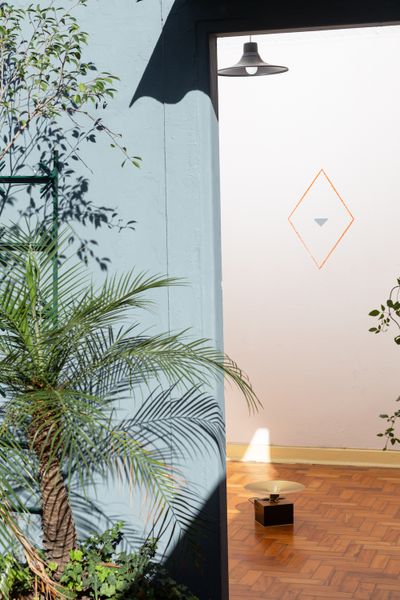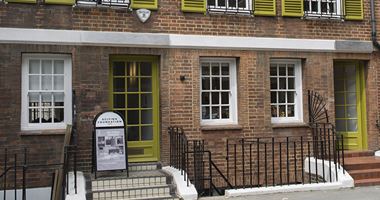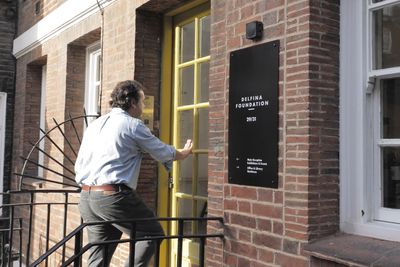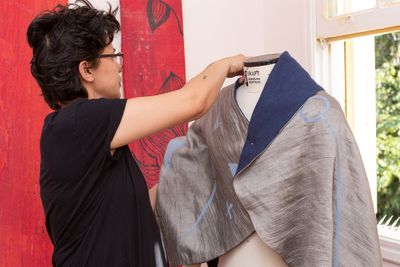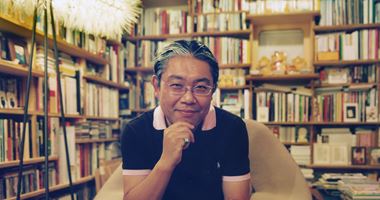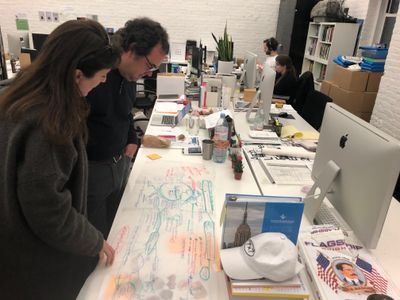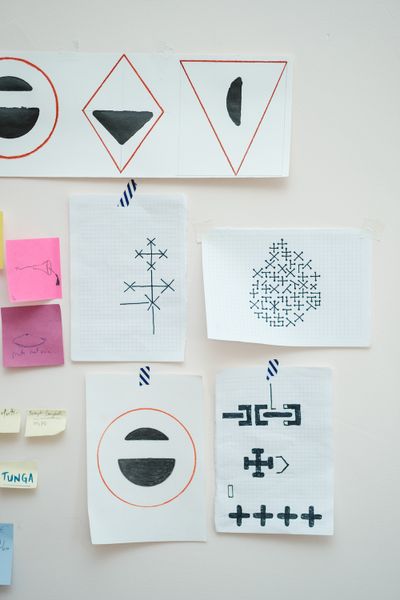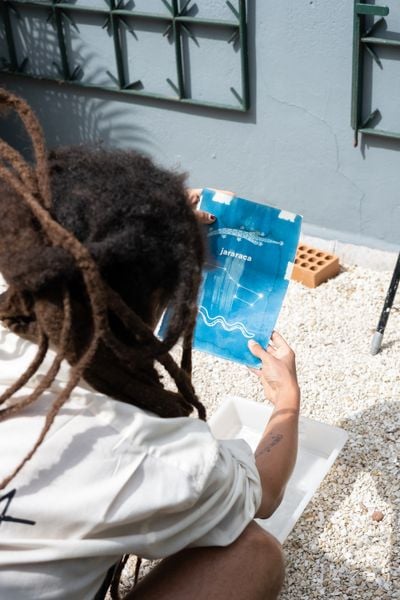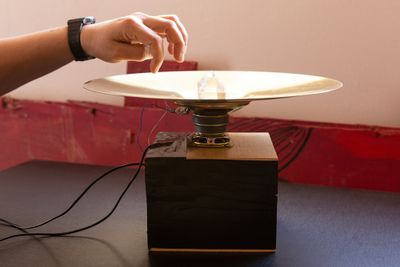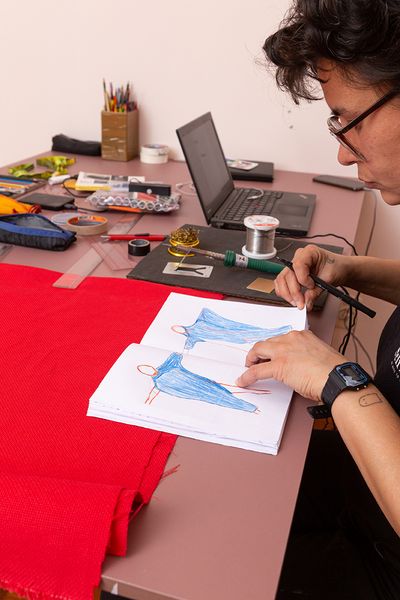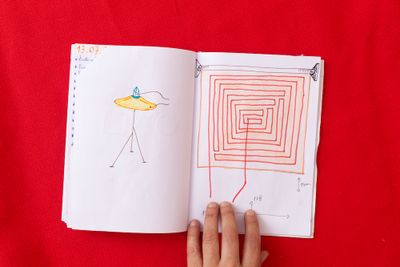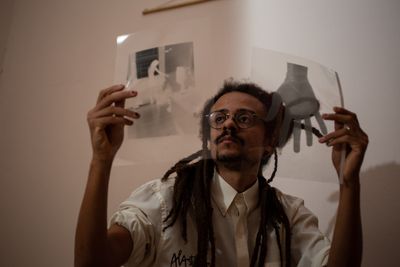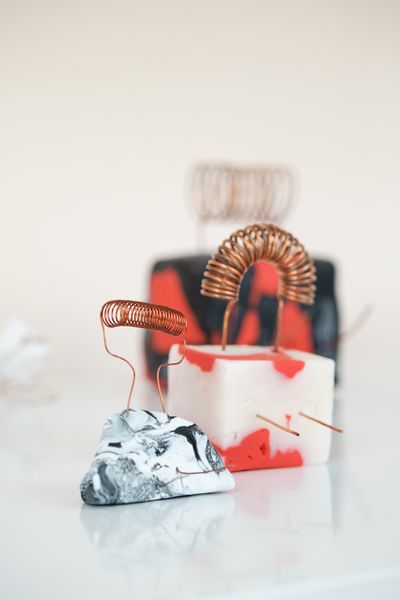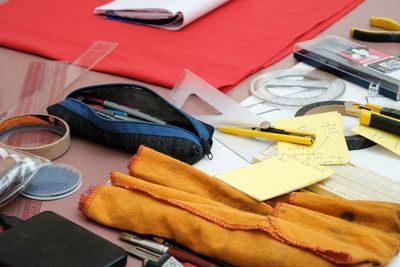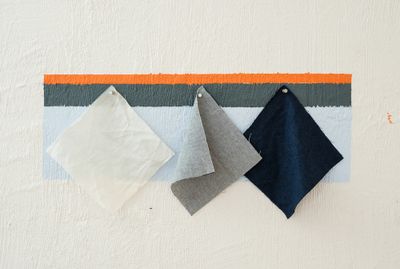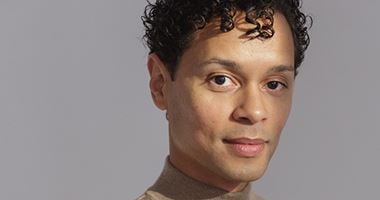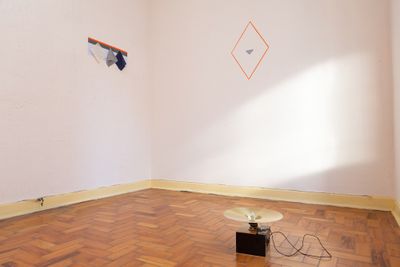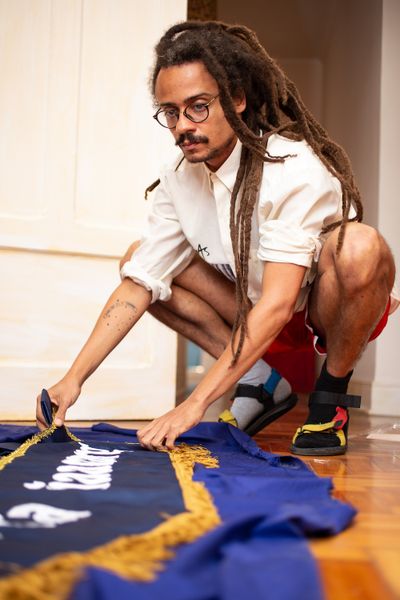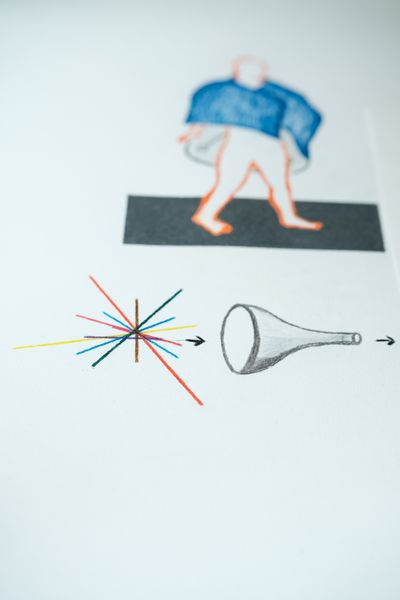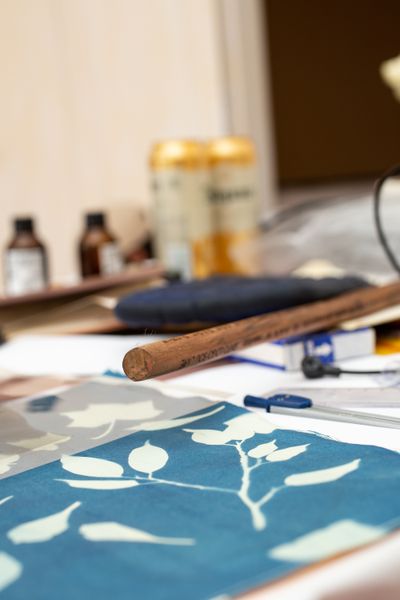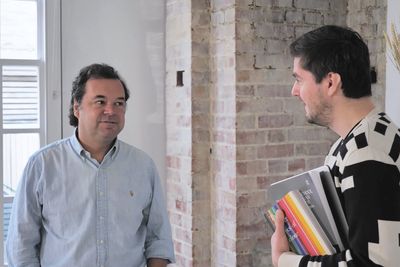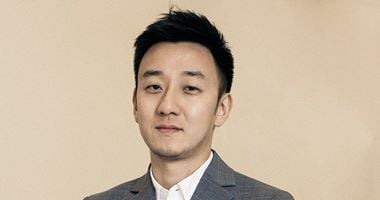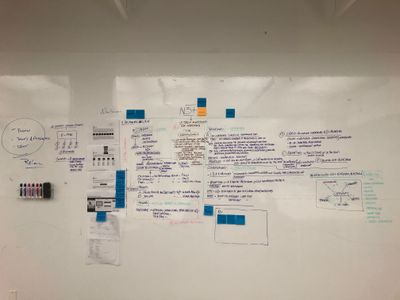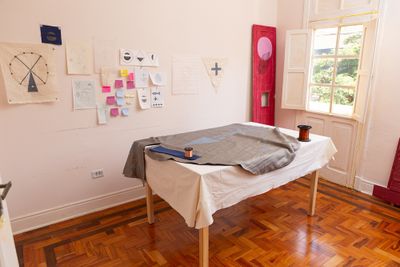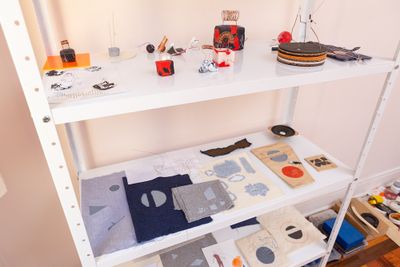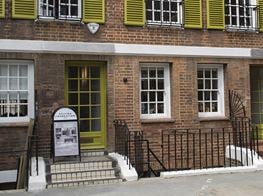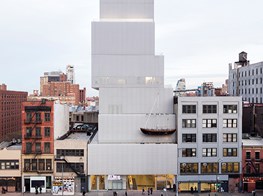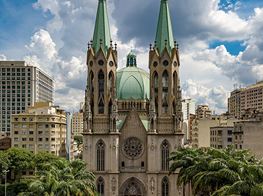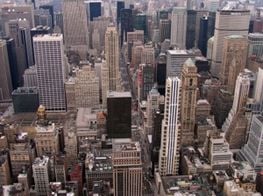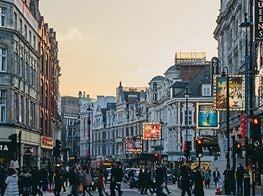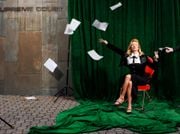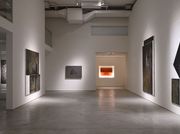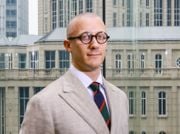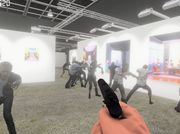Bernardo Faria: Unseen Transformations
In Partnership With Delfina Foundation
Courtesy Barnardo Faria.
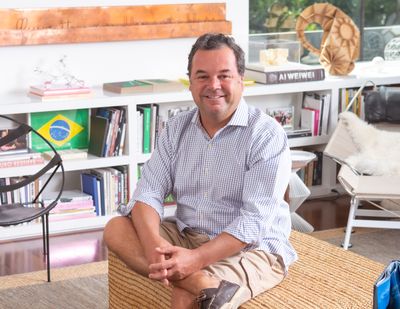
Courtesy Barnardo Faria.
Bernardo Faria is an art collector, patron, and entrepreneur who created one of the largest bitcoin exchanges in Brazil.
Faria is also co-founder of N3plus, an interdisciplinary digital platform that connects creative makers to companies and institutions, engaging with different solutions in retail, sustainability, innovation, and new technologies. N3plus is based at NEW INC, the world's first museum-led incubator inside the New Museum in New York dedicated to supporting innovation, collaboration, and entrepreneurship across art, design, and technology.
Throughout the months of lockdown in Brazil, Faria and his wife, Georgiana Rothier, launched a new residency programme in São Paulo called YBYTU, which came from a long-standing idea to provide opportunities for artists to think, reflect, and develop their practices. Artists including Denise Alves-Rodrigues, Rafael RG, and Rodrigo Garcia Dutr were chosen through an open call to receive full support during a two-month residency with curatorial mentoring and networking opportunities.
The following conversation between Hena Lee and Bernardo Faria was transcribed, translated, and edited from a Zoom call held in early July 2020, during a period of lockdown in São Paulo.
The conversation picks up from Faria's time as collector-in-residence at the Delfina Foundation as part of a thematic programme 'science_technology_society', which supports contemporary interdisciplinary approaches that consider, intervene in, and speculate on the current and future world.
Faria was invited to engage in an intensive one-week residency, contributing to discussions about decentralised infrastructures, visualising data, software sovereignty, and collaborative practices for artists. During his residency, Faria introduced the initial ideas of N3plus project to artists, organisations, and potential partners, and was able to delve into different models of connecting artists with different industries.
After months of incubation and development, Bernardo shares the challenges and motivations for creating this new platform that combines matchmaking tools with high-end solutions for corporations, bringing artists and creative studios to recalibrate brand experiences.
HLWhen we first met in October 2019, you were a collector-in-residence, living with other artists and curators at Delfina Foundation during the first iteration of the science_technology_society programme.
At that time, you had just been accepted as a permanent tenant at NEW INC with the N3plus project. Your residency was very much focused on the development of this platform. Can you tell us more about it and your motivations behind its creation?
BFI moved to New York in 2017 when I was managing a cryptocurrency company and following contemporary art, as it helped me to read the world.
During that time, I had a great conversation with Lisa Phillips, director of the New Museum, who told me why she was interested in having me as part of the museum's international leadership council. She pointed out that as a collector and someone who knew about technology I could understand and foresee what would happen in the future. She placed a mirror in front of me.
After two years, I presented for the first time the N3plus project at the New Museum with my partner Sabine Landolt. It's quite curious how I met Sabine. We consider it the first matching of our venture. I met her at the WeWork coworking spaces in New York.
It seems more relevant than ever to not centralise power in the larger museums or institutions.
I saw images and information about museums on her desk and we started talking. She had a branding agency at that time that had done work for many museums, and she was mentoring at the Entrepreneurship programme at McGill University in Montreal. After a few months of getting to know each other, I invited her to join me at N3plus. We combined my knowledge in cryptocurrency and her know-how in branding and technology to structure the project.
The initial idea was to create a digital creative coin that could be used by museums and artists to receive money to support exhibitions or simply as a creative coin that could encourage creativity. At that time, I believed the 'liquid' world would become more real over the years. Little had I known that this moment would come faster and stronger than I had expected.
Throughout this process, we've realised that the creative coin could be a tool within a platform. Speaking to many artists and creative studios during that time, we realised that linking artists or makers with technologists inside different companies, museums, and institutions seemed more relevant.
We thought it made more sense to have a digital platform that leans towards technologies and that creates communities—connects people, gets support for exhibitions and projects, or helps companies that are looking for a new perspective of the world.
HLAt the core of N3plus's mission, you are a true supporter of collaborations between artists and companies. Can you explain what other industries can benefit from working with artists? And what are the benefits that artists could get from working in different industries?
BFThe monopolies of Google and Facebook are so monetised—it all looks the same. It's boring for everybody. On the other hand, artists can bring new observations, new perspectives, and enable us to imagine things differently.
The displacement that artists create is interesting. They don't have this obligation as corporations to develop products. At the same time, talking to companies' coders, they have a tedious life, developing a machine's language the cartesian way, from zero to one.
For me, it's a big challenge to bring artists into corporations, where the focus is on numbers and profits. How could we bring art to help them have a more creative vision so they can also imagine a different world?
There is a term we use at N3plus, 'upgrade humans'. We would like this platform to transform and develop products and collaborations that could improve people's lives. It was developed from this perspective of bringing artists and their knowledge into a more integrated and multidisciplinary practice, changing paradigms, and creating new experiences and relationships.
The Adobe Creative Residency Program, which pays artists to develop personal projects, is a good example. I see this space as a grant opportunity. When I talked to the artists about it, they replied by saying how grants are important for them to survive for a year or so.
I see new structures booming around the globe, that are flatter and more vibrant. Freedom and empowerment exist in the vacuum.
Companies can give artists financial support, even if this support seems intangible at first glance. It can be developed through prizes, product design, virtual experiences, and so on. There are companies doing it very well, like Louis Vuitton, Cartier, and Google.
The important thing is to give artists IP protection when establishing these partnerships, so we are structuring ourselves to support and to balance both sides. We don't want these collaborations to become aggressive, from the corporation's side.
HLThe moment we are living in is a different one from the period you were in residence at Delfina Foundation. Have you been thinking about the digital and virtual changes we've been experiencing and the challenges they can bring to the art world?
BFThis moment is a fantastic turning point for the art world. It may sound strange to think that while we are living in these hard times, with so many losses, there is a possibility of changing the structures positively.
Viktor Frankl, the Austrian neurologist and a Holocaust survivor, went on to establish a new school of existential therapy called logotherapy, which suggests that finding meaning in life includes states of suffering, privation, and death.
As a mere global observer, I spent the past four months attempting to capture what I call the unseen transformation. This led us to nurture serendipity, raising new potentialities, and awakening new dreams. This new fusion, sparked by the visceral energy of the artists, means we are living in a vortex of possibilities. It makes me believe there is a bright light at the end of the tunnel.
I've had the opportunity to witness essential shifts in the structure of the art world. This moment raises a lot of survival questions. How people respond to change can determine how they are going to survive.
There is already a shift from the physical to the virtual sphere. There are many ways we are learning, seeing, interacting—creating virtual exhibitions, and watching performances online, for example. We are doing an intensive digital learning and with it, other digital spaces are being created within this displacement.
Art is now taking over a space that used to be considered second class. Curators used to tell me, 'Digital isn't a great thing', 'It's not my thing', 'I prefer walls and physical spaces', or, 'I'm not ready for it'. This digital sphere is being interrogated in the current moment.
This doesn't dismiss the challenges that come with it, obviously. Maintaining digital works, for example, can be complicated and requires technical knowledge. It's hard to preserve an old television or software. When I ask the people at Rhizome how their team is structured, they say they have a software curator, a developer that looks after the digital archive, and so on.
As museums around the globe have been closed since March 2020, artists, curators, and collectors have been inventing new ways to learn, work, and produce together. The old structure of the art world existed as a big funnel. The flux went to big cities like São Paulo, London, New York, Paris, and Hong Kong.
Those cities have museums and curators that decide what's good or not. If you wanted to be part of this structure, you would need to live in a big city, and spend time going around and talking with artists, curators, gallerists, and collectors. The new reality has changed. It has become broader, more inclusive, and more original. I see new structures booming around the globe, that are flatter and more vibrant. Freedom and empowerment exist in the vacuum.
I foresee some great new initiatives occurring in the U.S.A., Brazil, Canada, China, India, and the U.K. For example, last May, Pivô, an art space in downtown São Paulo that I've been involved with for a while, launched a new programme called Pivô Satellite, which was developed entirely for the internet. They put together this new programme, looking for new ways to remain active and committed to the institution's core values of fostering, producing, and promoting local artistic production.
Pivô Satellite is an autonomous digital platform that encompasses a series of artistic proposals for digital media, such as podcasts, webinars, visual essays, video streaming, commissioned digital works, and textual pieces. Having initially been temporary, the initiative has been made permanent and will continue beyond the lockdown period, becoming an ongoing online commissioning platform, running in parallel to their regular activities.
During the pandemic, I realised there was an opportunity to create new ways to connect people and build networked communities.
We never imagined that virtual residency programmes could run so well. This programme has the potential to help a generation of artists that could suffer due to the pandemic and economic crisis, as it could invite artists from different regions and cities, regardless of their location, thus increasing possibilities.
This example shows how the direness of the current situation led to re-thinking the modus operandi. I love the artists of Pivô's programme. The challenge is a breath of fresh air. It's an unprecedented opportunity to broadcast our unique blend of cultures. In this way, we can bridge Pivô Satellite to anywhere in the world.
HLCan you share with us other initiatives you've been involved with during these past months?
BFI've been supporting artists and curators for many years. During the pandemic, I realised there was an opportunity to create new ways to connect people and build networked communities. I've been nurturing a network of collectors, artists, and curators for a while.
I was talking to Giampaolo Bianconi, a former curatorial assistant of the New Media and Performance Art Department at MoMA, and we discussed the possibility of an online educational programme about electronic art led by him. Giampaolo has a unique knowledge of digital art, and I knew I was able to find people interested in his course.
After talking to a friend in Peru, we decided to invite some friends and artists to attend Giampaolo's classes. In two weeks, we gathered 15 collectors, artists, curators, and gallerists to participate in his first online course. It was a great cohort, and it has triggered collaborations between participants. Some are developing virtual exhibitions, virtual residencies, writing essays, and designing art apps.
I've had the opportunity to witness essential shifts in the structure of the art world. This moment raises a lot of survival questions.
With my wife, Georgiana, we also started a residency programme in São Paulo in June, motivated by our wish to support artists, and to be closer to them and their processes. Establishing active hearing is a very enriching process! We learn from the exchange and try to help the further development of the artists' projects.
We have set up networking opportunities, introducing artists to curators, collectors, and other artists, and have also offered a curatorial mentoring process with Luiza Teixeira de Freitas. We started the residency with artists based in São Paulo, but the idea is to bring artists from other parts of the country as well as internationally.
HLSpeaking of networking, could you talk about your experience as a collector in residence at Delfina Foundation, which involved living with artists and exchanging ideas about technology with them?
BFIt was a very positive experience! It was a breath of oxygen in the middle of chaos. I had the feeling that we were living in a spacecraft, a very special one, with incredible crew members who were the artists and the Delfina team.
The experience of being there, especially the displacement of being in another community and spending time with the artists, establishing a very horizontal relationship, was very special. Being able to have conversations with them and understand their projects in depth was a very rich experience.
It was fertile to establish a connection with artists like Gary Zhexi Zhang, who became one of the board members of N3plus, and Jaro Vargo, who is based in Prague, and with whom we have continued conversations about doing projects together.
I've also invited Salik Ansari, a young artist based in Mumbai, to develop a design tool for N3plus. Sabine and I wanted to find ways to create 40 to 50 matches per month, following a client request, and we knew that we wouldn't be able to do it alone.
When we shared this challenge with Salik, he was already ahead in the discussion because of a similar project he was developing in India. We commissioned him to develop a conceptual design of an algorithm that would understand different interactions based on media and emotions as a starting point for the development of a software we will use at N3plus.
HLAs we see changes in art institutions and organisations, have your thoughts about your role as a collector changed?
BFI've always seen my role as a supporter of institutions, small organisations, galleries, artists, and curators. One of the things we've been observing in Brazil is a new generation of very interesting Brazilian artists.
At the same time, even before the pandemic, because of the economic issues of the country, many artists didn't find spaces at galleries. Still today, you only have a few galleries working with young artists. So, there aren't many spaces where they can show their works, or develop further.
Together with my wife Georgiana, we thought, why don't we try supporting some artists by helping them mature their ideas? This is a project inspired by the Peruvian collector and co-founder Carlos Marsano's initiative.
It's quite simple and efficient. The idea was to bring 10 to 15 people who want to support a new generation of artists and create a prize. More important than the prize is putting the artists in the spotlight. There is a new generation of artists we are watching and encouraging.
We have always had a preoccupation with the new generation. That's why we support small organisations such as Annex B and Pivô. These are institutions that struggled the most to survive, since big patrons end up going to larger institutions, because of the association of their names or where they can network with other millionaires. We are concerned with how to support smaller organisations so they can survive, as they are crucial to support younger generations.
It seems more relevant than ever to not centralise power in the larger museums or institutions. We always observe, reflect, and talk about ways in which we can support. As we had been discussing with artists, one of the most interesting ideas that came up was to set up a virtual residency that opens doors and connects artists. It's a form of supporting artists in this moment. —[O]

